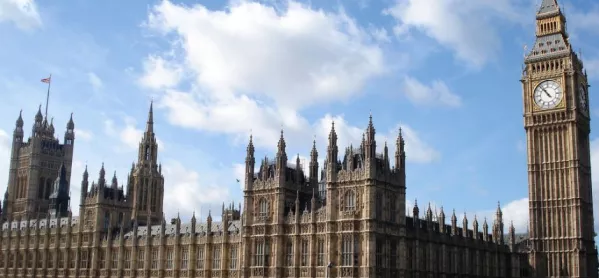A situation presented itself at our school hub today: a teenager was being verbally aggressive, expressing her anger at a perceived slight in the same room as (though not directly at) a vulnerable younger pupil with autism spectrum disorder.
This is not an uncommon scenario for pupils in alternative-provision settings who are experiencing and processing complex emotions, often without the tools to communicate their feelings appropriately.
Yet, as I watched our talented higher-level teaching assistant (HLTA) deftly de-escalate the situation with the older pupil, while simultaneously reassuring and supporting the younger student, I was aware that in Parliament the government was voting through the first stage of a bill that effectively declares that an HLTA is a “low-skilled worker”.
Worse: in some vernaculars, she would be termed “unskilled”.
Frankly, I can’t imagine many people more skilled.
Immigration bill: How can teaching assistants be called ‘unskilled’?
Schools are run by strong teams of staff who serve, protect, educate and emotionally support millions of pupils across the country in myriad different ways.
These teams are made up of staff with different skills and abilities, different levels of training and formal education, different roles in their settings - but are any of them truly unskilled?
Surely the word “unskilled” (or even the tamer, but equally abhorrent, “lower-skilled”) is just the wrong terminology? Perhaps “undervalued” might be better suited?
I want to stress that “undervalued” is not a monetary thing (though better and fairer education funding is always near the top of a wish list).
“Undervalued” is what those who work in education can be made to feel by wider society - in this case, a feeling led, justified and written into law by our government.
It’s not about wanting to be called “heroes” or implying that we are somehow more important than other sectors, it’s just about being appreciated and talked about in positive ways.
Being declared “unskilled” just because your salary is under £25,600 must feel like an extra kick in the teeth.
This will, of course, be especially stressful for any school staff member who is working in the UK under previous freedom-of-movement rules and now faces an uncertain future.
But even those who are not at risk of being impacted by the new immigration bill are slighted, too.
This is not unique to education, and is sadly true of staff in so many sectors - healthcare assistants, carers, lab assistants, etc, are all grouped the same way.
What is ‘skilled’ anyway?
Why is being paid over a certain amount a supposed indicator of skill anyway?
I am fortunate that I am paid fairly, and reasonably well, for what I do. I feel lucky that I have the privilege of being in this role and I really appreciate it.
I’m degree-educated (if that’s an indicator of skill) and I hope I am good at what I do, but am I more skilled at working with children and young people than I was when I was a teaching assistant paid £12,000 a year?
Or have I just received additional training.
I have different skills, certainly, and I have more experience and more responsibility, but, in reality, some of the innate skills are the same now as they were then.
I work with an amazing team. I am frequently taken aback at how far they are prepared to go over and above for our pupils, because it’s not just about a pay cheque - working in education is about so much more.
I am grateful daily for their hard work, resilience, adaptability and humour. They are all skilled in so many ways and that level of skill doesn’t change with a pay scale.
It’s worth remembering that our schools are filled with wonderful and talented people from all over the world; they bring a tapestry of experience, knowledge and, indeed, skill that our children would much worse off without.
I’ll never consider them low-skilled.
Kate Martin is vice-principal at Restormel Academy, an alternative provision school in Cornwall. She is on Twitter @k8martin




